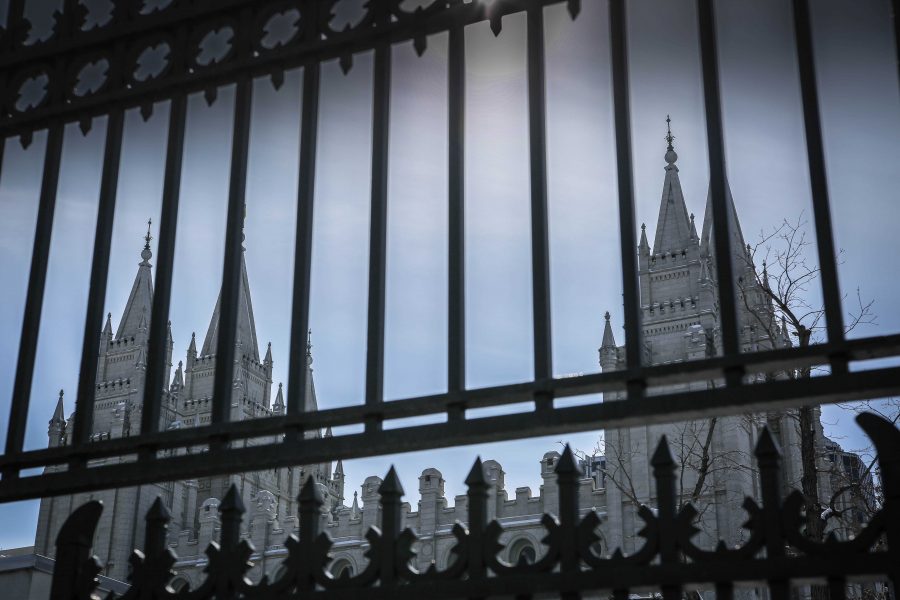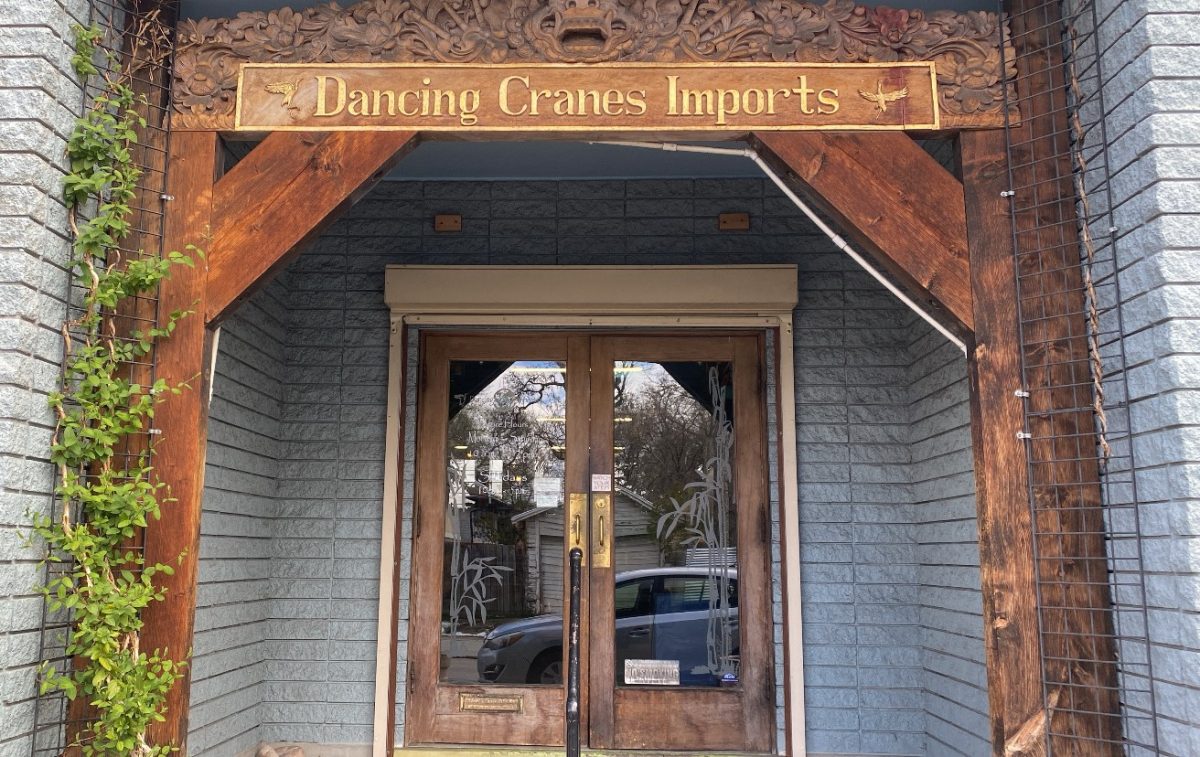Barron: What to Keep in Mind as You Vote on Proposition 2
The Church of Jesus Christ of Latter-Day-Saints temple in Salt Lake City, Utah on Wednesday, Feb. 21, 2018. (Photo by Cassandra Palor | Daily Utah Chronicle)
September 24, 2018
You might’ve seen it immediately. Perhaps your phone chirped on your way home from class, alerting you to a new email. You may have looked at it later, while you cleaned out your inbox for the day by deleting promotional offers and reading Canvas updates. Either way, you may have eventually read the subject line, “Statement on Proposition 2,” and realized it was sent on behalf of The Church of Jesus Christ of Latter-day Saints. You can support the legalization of medical marijuana or even utilize the substance for medical purposes and it will have no effect on your standing in the church. However, this email is urging members to vote “no” to Proposition 2 and the legalization of medical marijuana in Utah this November, citing potential public safety risks over the potential benefits.
Members of the faith are familiar with the letters from the First Presidency read every spring and fall over the pulpit encouraging congregations to vote in upcoming local and national elections, but this letter has a different tone. While some may point to this email as evidence contradicting the church’s self-declared political neutrality, members know how often the church addresses “issues that [the church] believes have significant community or moral consequences.” 10 years ago, the church joined with other religious conservatives in California and tried to define marriage as being between only a man and a woman. If you are a member, you may have been states away and too young to vote, but you knew what “Prop 8” was. Even though it was a decade ago, your perception of the Church of Jesus Christ of Latter-day Saints’ past involvement in California’s ballot will impact how you feel about the church’s current involvement in Utah’s laws.
If you try to google Proposition 2, you will find articles expressing opinions ranging from “medical cannabis is a saving miracle for many families like mine” to “proposed medical marijuana law would violate constitutional protections of religious freedom,” but finding the actual text of the proposition will be much harder. You will see pictures of children who experience dozens of seizures daily who could find reprieve through medical marijuana and you will read concerns that too many Utahns will have easy access to medical marijuana under Proposition 2. As you read through each opinion piece and news article, your own thoughts may seem to be overshadowed by those of experts, stakeholders and leaders. Eventually, you may run across Eric Biggart’s, the LDS Democrats chairman, simple response when asked if his caucus supports the initiative. “We’re inviting voters to use their God-given agency.”
“To use their God-given agency.” Maybe after you read this line again, you may fall to your knees in prayer or maybe you may continue your online research. Maybe you vote “yes” in November, or maybe you vote “no.” This final decision is private and should be yours, not just your church’s. Maybe you choose to share your choice or maybe you don’t. Much like religion, politics is personal.









Jeanne Aldrich • Sep 25, 2018 at 10:50 am
Voting yes because that is what feels right to me.
Chris • Sep 25, 2018 at 7:55 am
Finding the actual text is not hard at all. It’s on the utah.gov website just as every other piece of Utah legislation is.
This article is just more obfuscation.